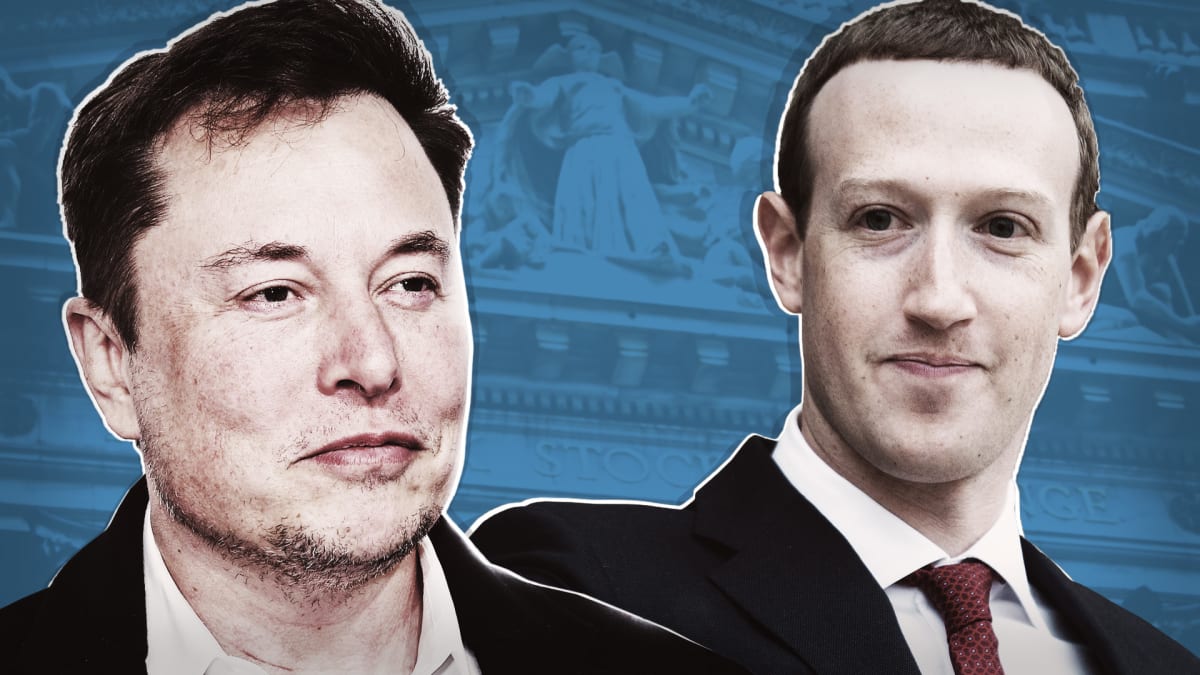
It makes Elon Musk smile.
A bit more than three months ago, the whimsical and charismatic Tesla (TSLA) CEO, who had just completed the acquisition of Twitter for $44 billion, decided to find new sources of revenue to reduce the platform's dependence on ads.
Musk then launched a revamp of Blue, the microblogging site's subscription service. To attract customers, the techno king (as he is known at Tesla) decided to charge for the blue badge, which authenticates the identity of the person or entity behind an account.
This badge, which had been free until then, was going to be integrated into Blue. This decision had caused an outcry, marked by a campaign of trolls in protest. But the billionaire held firm.
Musk Is Making Inroads
Blue costs $7.99 a month for people using any smartphone powered by the Android (GOOGL) operating system, and costs $11 a month for iPhone (AAPL) users, unless they subscribe online. This price difference is explained by the fact that Musk wants to pass on to users the fee that Apple charges for purchases made through its App Store.
The billionaire consequently made verification the main marketing argument for charging for Blue, a strategy justified by because fake accounts, bots and trolls have proliferated. Musk has also added new features to Blue, such as the ability to edit tweets.
Besides consumers, Musk has also rolled out a gray badge for public institutions and entities, such as the White House and politicians. Companies and entities affiliated with them get gold badges. Musk and Twitter plan to charge for the gold badges, too.
Do these monetization efforts work? Hard to say. Twitter is a private company and has no obligation to disclose its financial results. Musk, who after he arrived had said several times that Twitter was on the verge of bankruptcy, recently said that the platform was close to financial equilibrium.
"Twitter still has challenges, but is now trending to breakeven if we keep at it. Public support is much appreciated!" the billionaire said on Feb. 5.
Zuckerberg Launches Meta Verified
Now, Twitter rivals seem to think Musk's moves are paying off.
Mark Zuckerberg, CEO of social-networking giant Meta Platforms (META), has just launched a paid subscription service for Facebook and Instagram using Musk's recipe.
This service, Meta Verified, will cost $11.99 a month for users subscribing on the web and $14.99 a month for those using Apple's iOS operating system.
"Good morning and new product announcement," Zuckerberg said on Feb. 19. "This week we're starting to roll out Meta Verified - - a subscription service that lets you verify your account with a government ID, get a blue badge, get extra impersonation protection against accounts claiming to be you, and get direct access to customer support."
He added: "This new feature is about increasing authenticity and security across our services."
The service will first be available to users in Australia and New Zealand this week. Meta plans to expand to other countries later.
The announcement did not escape Musk fans, who did not hesitate to report it immediately to their champion.
"Zuckerberg copies Twitter: $12 bucks per month to get verified and receive a blue badge," one Twitter account tweeted on Feb. 19.
"Inevitable," Musk commented.
He seems to say it was a matter of time before the social platforms started to offer paid services. Zuckerberg may have taken awhile to do this but it had to happen at some point.
The billionaire thus seems to be taking the high road and avoiding attacking Zuckerberg, with whom he has a testy relationship. Last April, he dubbed him "Zuck the Fourteenth" in an apparent nod to the French king Louis The XIV, famous for his hubris and excess.
"You should charge him royalties," mocked one Twitter user.
"The trendsetter Elon!" added another user.
Some Musk fans have also had fun with memes calling Zuckerberg a cheat and a copycat.
Musk, on the other hand, couldn't help but laugh when a meme from a fan shows two students in an exam room.
The one on the left, who is meant to be Musk, is busy answering the test, while the one on the right, representing Zuckerberg, is peering over at what his neighbor is writing. The idea is that Zuckerberg is unable to create by himself and spends his time copying Musk.
Musk reacted with the ROFL -- Rolling on Floor Laughing -- emoji. This emoji depicts a smiling face, crying tears of joy while leaning to one side.







